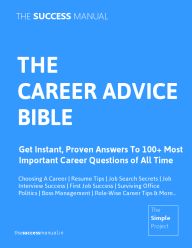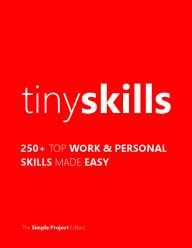On February 16, 2025 By thesuccessmanual Topic: Remarkable, Book summary
This is a summary of Founders at Work: Stories of Startups’ Early Days, by Jessica Livingston, in which entrepreneurs tell about their early days. I should also point that this book is more oriented towards technology entrepreneurs.
This guide belongs to 100 Ways To Be Being Remarkable Series, a special project that brings you business and self-development advice from The Success Manual.
“If they passed the litmus test of not rejecting us for the wrong reasons and said, ‘OK, we don’t mind that you’re young, we don’t mind that you don’t have management experience, only when they would start poking holes in the actual idea would we share the Hotmail idea with them.”
- Sabeer Bhatia (Hotmail) on how he decided whether to tell venture capitalists the real idea he wanted to get funded.
“All the best things I did at Apple came from (a) not having money, and (b) not having done it before, ever.”
- Steve Wozniak (Apple)
“I think I said probably $2 to $3 million. We had nothing. We hand an early-stage under-development spreadsheet, and me and Jon Sachs. So that was the biggest number I felt I could ask for without being totally absurd.”
- Mitch Kapor (Lotus Development) on how much money he asked for from Sevin-Rosen.
“We posted it on our website, and it said, ‘Hey, we know Blogger is really slow. It’s because we need more hardware. We don’t have the money to buy it, so give us money, and we will buy more hardware and we’ll make Blogger faster.’”
- Evan Williams (Blogger.com) on how he raised money to buy more servers.
“The funniest thing I can remember was when there was a huge storm in May of ‘95, and the power grid went down for a few days. We had to go rent a power generator and take turns filling it with diesel fuel for 4 days. 24/7. We were laughing, ‘How many pages to the gallon today?’”
- Tim Brady (Yahoo!).
“’…What’s important to me are the signs on the back of the building.’ Of course, everyone recoiled from that. I explained to them, ‘I don’t really care if anyone else knows where the building is. All I want is the students to know where the building is.’”
- Mike Lazaridis (Research in Motion) on the importance of recruiting students.
“I remember one weekend, we took the entire company, what was about 60 people at the time, and we divvied them up and went to all the Fry’s stores in the Bay Area, because they were selling at Fry’s. We set up demo stations and the employees were giving demos. It was great because almost everybody had no experience of what it’s really like to sell in a retail store.”
- Mike Ramsay (Tivo)
“Neither of us knew how to write Windows software, and we didn’t want to learn. It seemed like this huge steaming turd that was best avoided. So the main thing we thought when we first had the idea of doing web-based applications was, ‘Thank God we don’t have to write software on Windows.’”
- Paul Graham (Viaweb)
“The advice I would give is to avoid it. I would say spend as little as you can because every dollar of the investors’ money you get will be taken out of your ass…”
- Paul Graham on raising money
“So Flickr started off as a feature. It wasn’t really a product. It was kind of IM in which you could drag and drop photos onto people’s desktops and show them what you were looking at.”
- Catarina Fake (Flickr)
“The blessing of Thinking Machines and the curse of Thinking Machines was that it had a lot of money. If you have a lot of money, then you can be detached from people that are going to pay you in the future.”
- Brewster Kahle (Thinking Machines)
“They loved this stuff. They sat down and played with the mouse, they changed a few things on the screen, they hit the print button and it looked the same on paper as it did on the screen. They said, ‘Wow, this is really cool. This would really change an office if it had this technology.’”
- Chuck Geshke (Adobe) on the reaction of the spouses of Xerox execs to a demonstration of PARC technology in 1977
“So I get in front of these 60 or 70 guys and these guys are probably all in their 50s and I’m in my 20s, and we had a ‘blue light special,’ where we said, ‘If you give me a check today for $10,000, you can have unlimited rights to one of our modules.’ …I went home with, I think, like 12 or 15 of these $10,000 checks in my purse.”
- Ann Winblad (Open Systems).
“Barak said, ‘That’s great for a niche or personal lifestyle business, but we’re not interested in investing in that.’ At first we thought, ‘Who is this assholeWhy is he saying that to us?’”
- Mena Trott (Six Apart) on early meetings with the current CEO of the company, Barak Berkowitz.
If you liked this article, please bookmark it on Delicious or share on Twitter. Thanks, friends. Follow us on Twitter. | Get Updates To This Blog Via RSS
We don't recommend any other guide than our very own The Success Manual - Encyclopedia of advice to 130 most important skills.

